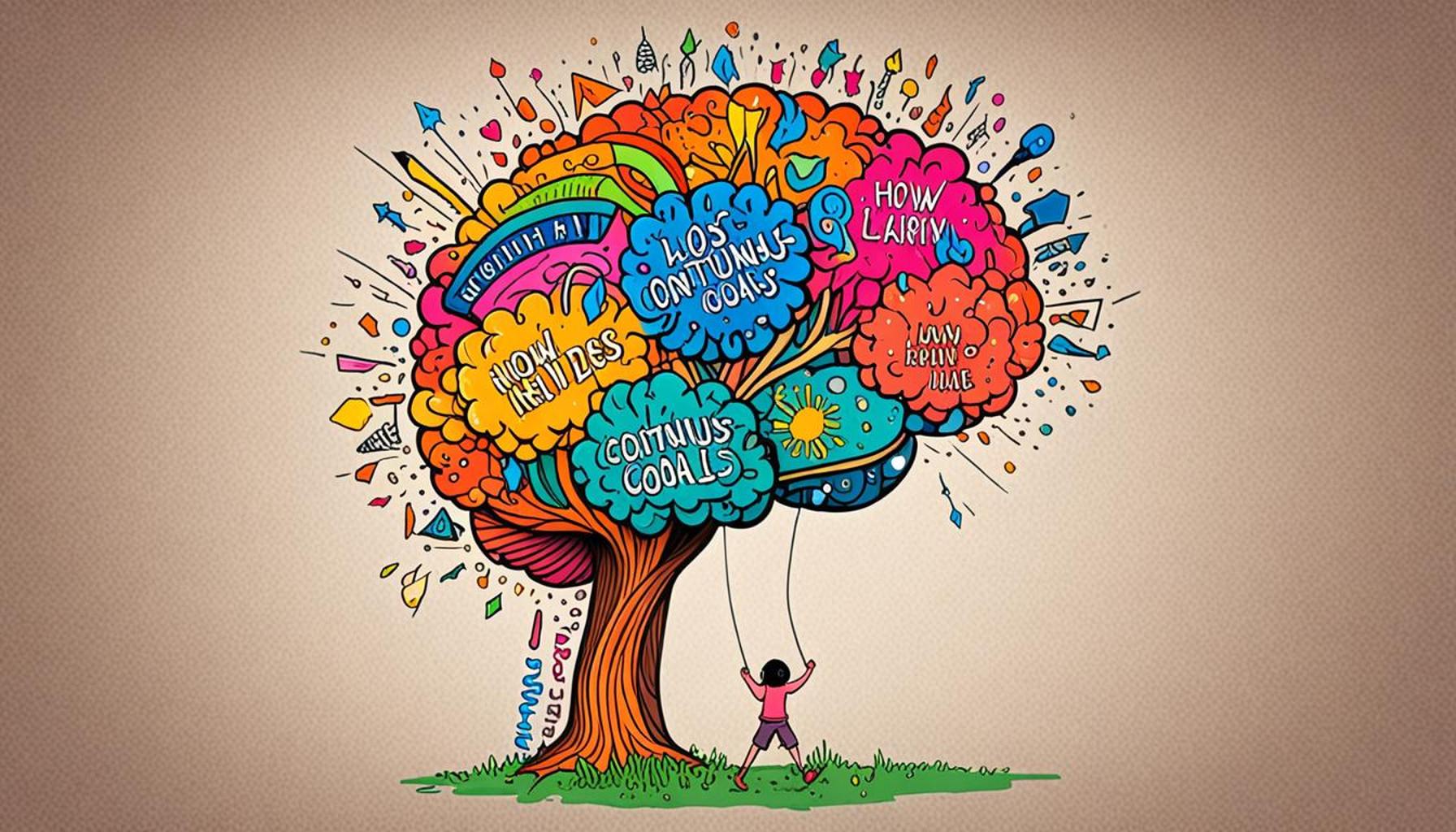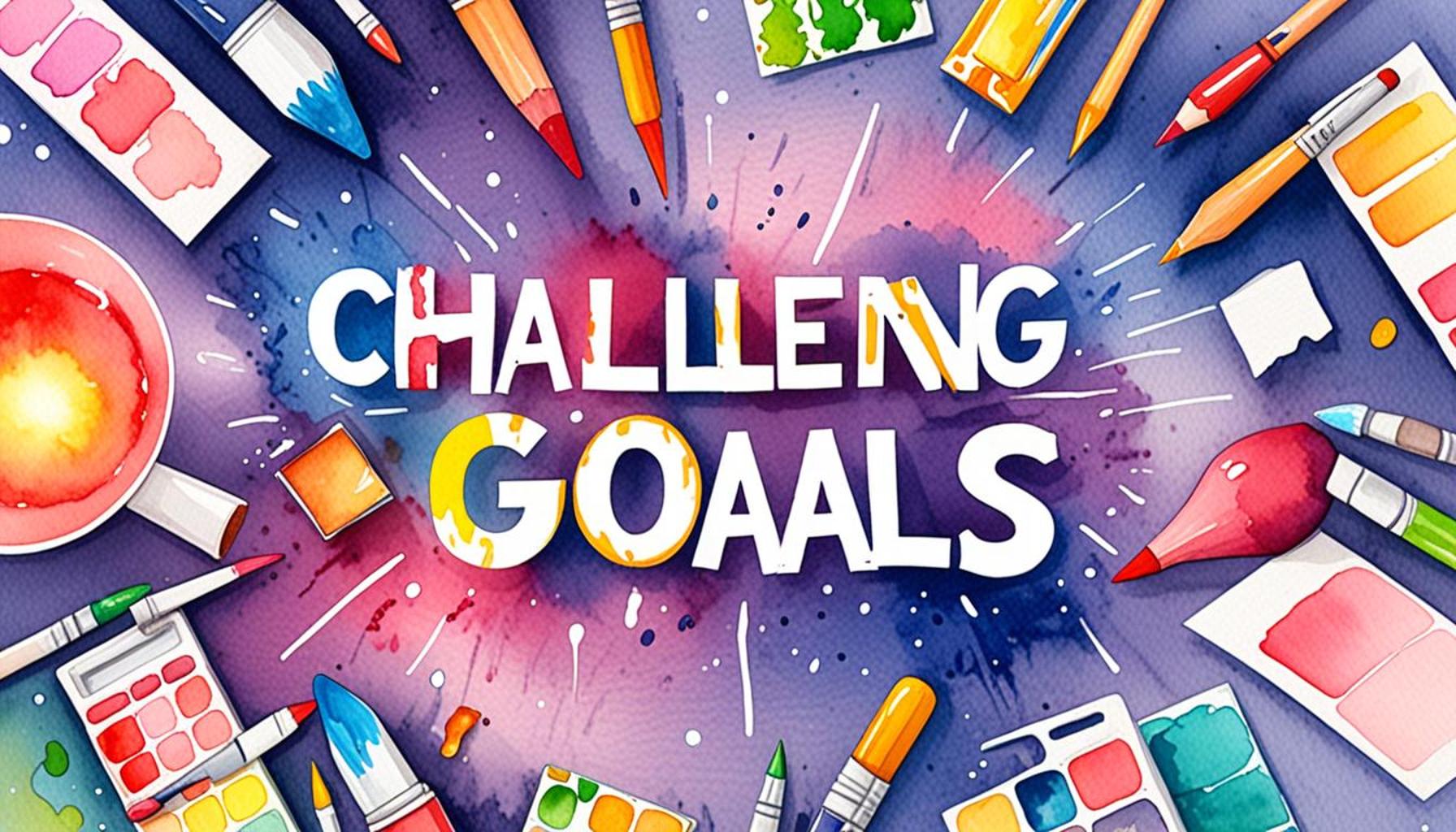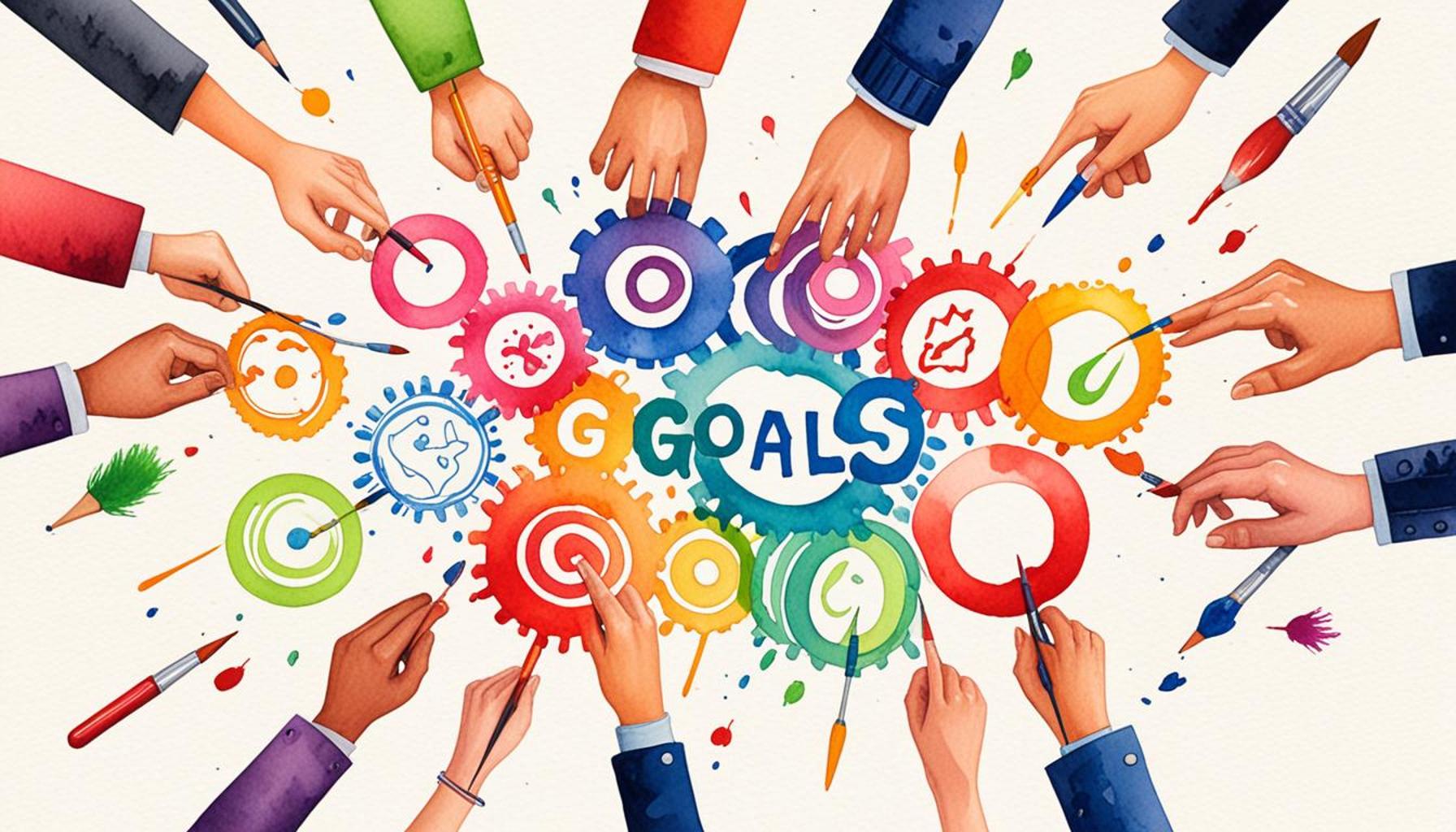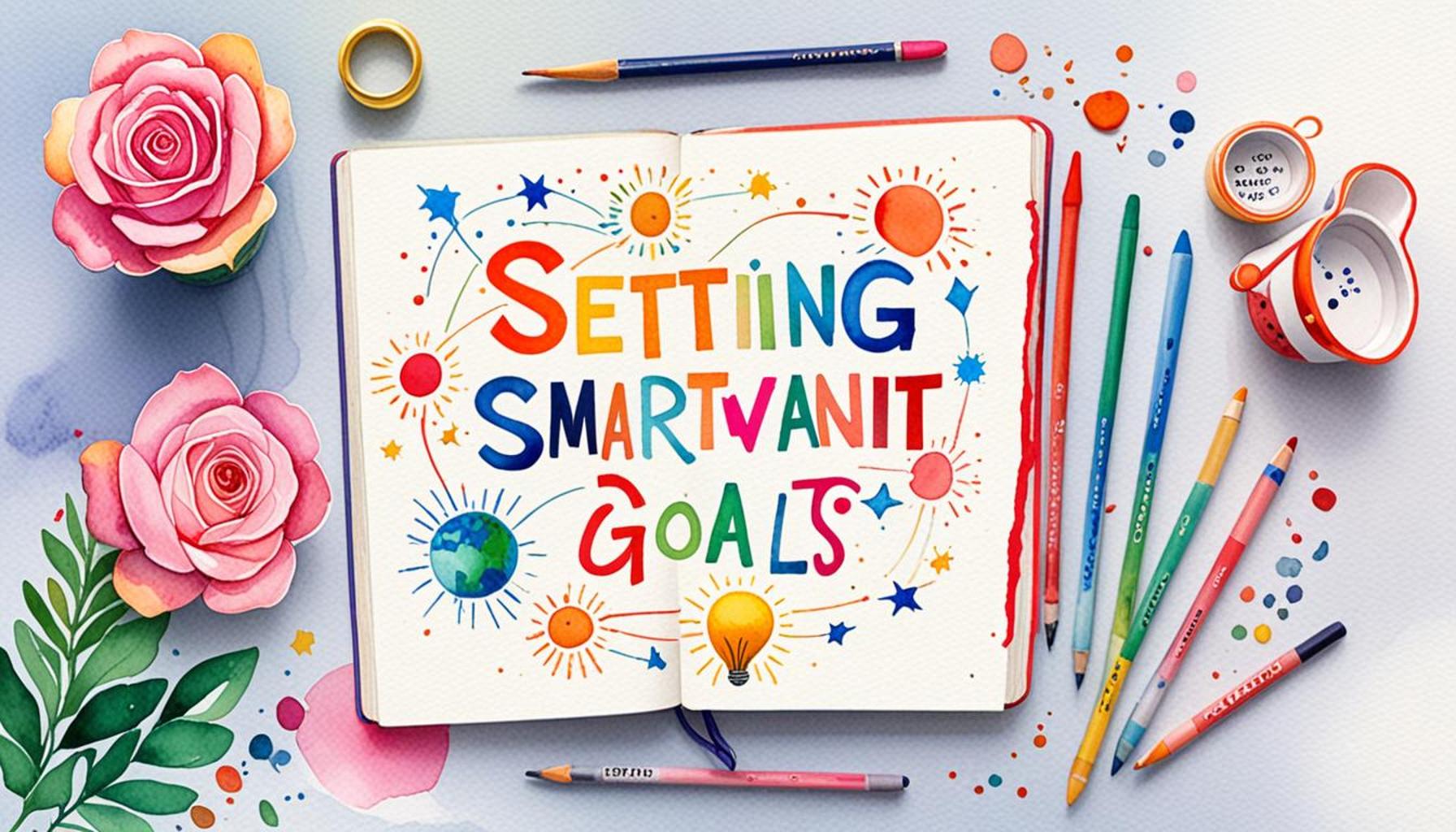How Continuous Learning Goals Stimulate a Growth Mindset

Embracing the Journey of Lifelong Learning
In an era characterized by rapid change and constant innovation, possessing a growth mindset is essential for thriving both personally and professionally. Continuous learning empowers individuals to remain competitive, adapt to shifts in their industry, and uncover new pathways for advancement. In Nigeria, where the tech landscape is evolving at a remarkable pace, this mindset is not just beneficial; it is imperative for anyone looking to succeed and contribute meaningfully to society.
So, how can one effectively embrace continuous learning? Let’s examine some pivotal aspects of setting continuous learning goals that nurture a growth mindset:
- Adaptability: Acquiring new skills is not merely about expanding a resume; it equips individuals with the tools necessary to navigate a world fraught with challenges. For instance, the rise of digital banking in Nigeria has transformed the financial services sector. By learning about mobile payment platforms and fintech innovations, individuals can thrive in this shifting landscape, contributing to their organizations and communities.
- Resilience: Education often involves overcoming setbacks, which fosters a sense of determination. Consider the story of many Nigerian entrepreneurs who have encountered failure on their path to success. By learning from their experiences and seeking further education, they have demonstrated how resilience can be cultivated through continuous learning, leading to breakthroughs in their ventures.
- Curiosity: A commitment to learning sparks an insatiable desire to understand the world. In Nigeria, where diverse cultures and rich histories exist, this curiosity can lead to exploring various fields such as agriculture, technology, and the arts. Embracing interdisciplinary learning not only broadens one’s perspectives but also opens the door to innovative solutions and collaborations.
The urgency for a growth mindset is particularly pronounced in Nigeria, where advancements in technology are reshaping entire industries. Continuous learning not only enhances individual confidence but also contributes significantly to the nation’s collective progress. As sectors like agriculture adopt smart farming techniques and cities explore sustainable urban development, the role of educated, adaptable citizens becomes more critical than ever.
This article aims to guide you through the process of setting structured learning goals, enabling you to break down barriers and realize your fullest potential. From online courses to community workshops, the opportunities for learning are vast and within reach. Get inspired to discover strategies that can enrich your learning journey and, in turn, empower others in your community to do the same.
LEARN MORE: This related article may interest you

Igniting The Spark of Knowledge
Setting continuous learning goals is more than a mere task—it’s a pivotal step toward cultivating a vibrant growth mindset. In a country like Nigeria, where diverse opportunities beckon in sectors such as agriculture, technology, and entrepreneurship, the importance of having structured learning objectives cannot be overstated. Learning goals act as a compass, guiding individuals toward acquiring critical knowledge and skills that are essential for personal and professional development.
Creating effective learning goals involves being both strategic and reflective. Individuals must first assess their current skills and identify areas for improvement. This understanding opens the door to targeted objectives, which can significantly enhance motivation and engagement. Here’s how setting structured learning goals can catalyze a growth mindset:
- Enhanced Focus: Continuous learning goals provide clarity on what to pursue. By narrowing down specific skills—like coding in Python or mastering digital marketing—individuals can concentrate their efforts on areas that align with their career aspirations. For example, a young entrepreneur in Nigeria looking to start an e-commerce business can set a goal to learn about supply chain management and digital advertising within a three-month timeframe.
- Accountability: Documenting learning goals fosters a sense of accountability. When individuals commit to their objectives, they are more likely to follow through. Whether through tracking progress in a journal or by sharing goals with a learning partner—having checkpoints encourages consistency. This accountability is particularly vital in Nigeria’s vibrant yet competitive job market, where individuals must stay ahead to secure employment opportunities.
- Self-Efficacy: Achieving set learning goals instills a sense of self-efficacy and confidence. Each milestone reached serves as a reminder of personal growth, reinforcing the belief that challenges can be overcome. In Nigeria, where many face various socio-economic hurdles, recognizing one’s capability to learn and adapt acts as a powerful motivator to tackle future challenges head-on.
Moreover, as individuals embark on this journey of continuous learning, the collaborative nature of education becomes evident. Engaging with peers, mentors, or even participating in community-based workshops can enhance the learning experience, allowing for shared insights and collective growth. In this way, a culture of learning is fostered, which ultimately contributes to the broader goal of national development.
The ripple effects of establishing continuous learning goals resonate beyond personal achievement; they signify a commitment to lifelong learning that can uplift communities. As Nigeria continues to navigate the complexities of a globalized economy, cultivating a growth mindset through structured learning goals will not only enrich individual lives but also empower the nation as a whole.
How Continuous Learning Goals Stimulate a Growth Mindset
Continuous learning is essential for personal and professional development, profoundly influencing the emergence of a growth mindset. When individuals set learning goals, they create a framework that encourages adaptability and resilience. This adaptive approach helps to foster an environment where failure is perceived as a stepping stone to improvement rather than a roadblock. For instance, individuals committed to continuous education are more likely to embrace challenges and persist through difficulties. This is because they recognize that skills and intelligence can develop over time through dedication and hard work. Research suggests that when learners set specific and achievable goals, they experience increased motivation and satisfaction, further enhancing their desire to learn and evolve. Additionally, goal-setting strategies are critical to reinforcing this mindset. By breaking down larger learning objectives into smaller, manageable tasks, individuals can celebrate small victories along their journey. These achievements play a vital role in boosting confidence and creating a positive feedback loop that continuously fuels the desire to learn more.Furthermore, organizations that foster a culture of continuous learning often see significant benefits in employee engagement and performance. Team members who are encouraged to pursue knowledge and skills feel valued and are more likely to contribute innovative ideas. This collective commitment to growth creates a dynamic workplace where individuals are inspired to push their boundaries and explore new possibilities.In this context, embracing continuous learning is not merely an option but a compelling necessity for those seeking to thrive in an ever-changing world. It opens doors to new opportunities and equips individuals with the tools to face challenges head-on.
| Category 1 | Category 2 |
|---|---|
| Benefits of Continuous Learning | Encourages exploration and adaptation to new challenges. |
| Motivation Boost | Increased engagement levels lead to enhanced productivity and innovation. |
By cultivating a consistent habit of learning, individuals can unlock their true potential and develop the resilience needed to thrive in today’s fast-paced world. This journey fuels a growth mindset and promotes a lifelong love for learning, ultimately enriching both personal and professional aspects of life.
LEARN MORE: This related article may interest you
Building Resilience Through Continuous Learning
The journey of setting continuous learning goals is intertwined with the development of resilience, especially in a rapidly evolving job market like Nigeria’s. Resilience is the capacity to recover quickly from difficulties, an essential trait that complements a growth mindset. As individuals work towards their educational objectives, they inevitably encounter setbacks and challenges that test their resolve. This interaction between learning and resilience fosters an environment where embracing failure becomes a stepping stone toward improvement.
Furthermore, establishing learning goals encourages adaptability. In a world where technological advancements and market dynamics shift at an astonishing pace, the ability to pivot and acquire new skills is paramount. For instance, a software developer aiming to stay relevant might set a goal to learn emerging programming languages such as Rust or Go. By doing so, they not only enhance their skill set but also position themselves as valuable contributors within the tech industry. This adaptability fosters a mindset where individuals view challenges not as obstacles, but as opportunities for growth.
In addition, engaging in continuous learning opens doors to networking possibilities. By pursuing structured learning goals through workshops, online courses, or university programs, individuals increase their exposure to a wider network of professionals. Networking with like-minded individuals can spark collaborative initiatives and mutual support systems, which are vital for personal and communal growth. In Nigeria, where collective progress significantly influences overall societal well-being, establishing connections is instrumental in fostering a culture of learning. It breaks down barriers and encourages collaboration across various sectors, such as agriculture, healthcare, and technology.
Moreover, individual commitment to learning goals impacts the larger community. When an individual advances their knowledge, they often take on leadership roles within the community, sharing insights with peers and even mentoring others. This phenomenon creates a cycle of learning where knowledge is shared, further enriching the community. For instance, a successful entrepreneur who has mastered digital marketing can hold training sessions for aspiring business owners, thereby uplifting the broader community. This not only helps cement the individual’s understanding but ignites passion and ambition among learners.
- Empowered Decision Making: Continuous learning goals bolster informed decision-making. By equipping individuals with knowledge and skills, they are empowered to make choices aligned with their objectives. For example, a farmer who learns about sustainable agricultural practices can make better choices that enhance yield without harming the environment.
- Innovative Thinking: Setting specific educational goals stimulates creative problem-solving. In Nigeria, where resources may be limited, individuals who focus on innovation can develop unique strategies that leverage local resources. This can lead to the emergence of new business models that benefit not only the individual but the community at large.
Ultimately, the act of setting continuous learning goals transcends personal ambition; it nurtures a resilient, adaptable mindset capable of thriving in the face of adversity. As individuals in Nigeria embrace challenges, they not only uplift themselves but also contribute to the nation’s journey towards socio-economic progress. The fusion of continuous learning with resilience and community engagement strengthens the foundation for a robust growth mindset that can navigate the complexities of today’s world.
YOU MAY ALSO LIKE: Read read another article
Conclusion: Cultivating a Growth Mindset Through Continuous Learning
In summary, the practice of establishing continuous learning goals is pivotal in fostering a growth mindset, particularly within the context of Nigeria’s dynamic socioeconomic environment. By embracing the challenges associated with learning, individuals not only enhance their skills but also develop the essential qualities of resilience and adaptability. This journey transforms obstacles into opportunities, creating a culture where individuals encourage each other to persevere and innovate.
Moreover, the interconnectedness of personal development and community advancement reveals a profound truth: as individuals grow through continuous learning, their positive impact resonates far beyond their own lives. They become agents of change, disseminating knowledge in their communities and motivating others to pursue their learning journeys. Whether it’s through mentorship, collaboration, or collective problem-solving, the ripple effect of personal success magnifies community growth.
Additionally, the empowerment that stems from informed decision-making and innovative thinking equips individuals to tackle real-world challenges effectively. In a rapidly progressing landscape, fostering a culture of continuous learning not only elevates personal capabilities but also enhances overall societal progress. Thus, it is essential to champion and cultivate these learning goals, ensuring they are systemic in our communities, workplaces, and educational institutions.
As individuals take ownership of their futures through learning, they contribute significantly to shaping a vibrant, progressive society. In this era of unprecedented change, a steadfast commitment to continuous learning is not just an investment in personal achievement—it is a commitment to the collective advancement of Nigeria as a whole.


